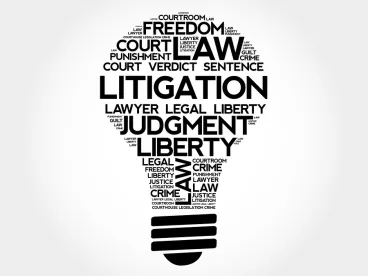The last month of the year brought changes to Rule 30 of the Federal Rules of Civil Procedure, specifically Rule 30(b)(6), governing deposition notices to organizations. The rule was amended, effective December 1, 2020.
Substantive Change and Purpose
The Amendment requires that the parties—before or promptly after service of the notice or subpoena for the deposition—confer in good faith about “the matters for examination.” The Rule recognizes that multiple conferences may be required to satisfy the new guidance, however, it does not establish a timeline for completing the meet-and-confer process. Based on feedback on the preliminary proposed amendment, the adopted changes purposely do not require that the parties reach agreement on the organization designee or matters that will be covered, but merely require that they confer in good faith. The named organization ultimately retains its right to select its own designees.
The Advisory Committee notes that the Amendment is intended to facilitate collaborative efforts and candid exchanges about discovery goals and organizational information structure in order to reduce difficulty in identifying the right person to testify and materials needed for preparation. The change is aimed at resolving issues with overly long or ambiguous lists of matters for examination and inadequately prepared witnesses.
Implications on Product Liability Litigation
The Amendment likely will provide the advantages predicted by the Advisory Committee, but with those advantages come potential risks. Particularly in the class action or mass torts sphere where multiple 30(b)(6) depositions are common, the new conferral requirement may provide an opportunity for the party issuing the deposition notice to use the conferral process to its advantage.
Conferral may provide a path for the issuing party to attempt to dig for information prior to a deposition. A party could use such additional information to make a 30(b)(6) deposition more personal to the designated representative. In addition, issuing parties may attempt to negotiate for more deposition opportunities, potentially disproportionately increasing the burden to the organization. Issuing parties also may have an opportunity to influence an organization’s ability to select a representative witness. While the Amendment preserves an organization’s right to choose its own witness or witnesses, introducing the conferral requirement could lead to disagreement, efforts by the issuing party to require the organization to designate multiple witnesses, and motion practice encroaching on the organization’s right to choose its witness(es). An issuing party may attempt to argue whether a conference was in good faith based on an organization’s designation of a witness. Furthermore, the new meet-and-confer obligations may create clearer motion to compel opportunities if an organization’s witness is not prepared for a topic or topics documented as part of a meet-and-confer discussion.
The Amendment does not provide a clear timeline for when the conferral process must conclude. This leaves the door open for last-minute requests to confer that could be used to modify the substance of a deposition or merely to cause harassment or delay in the deposition.
While the Amendment to Rule 30(b)(6) was intended to achieve proportionality and appears widely supported (as it is likely documenting a process already taking place in the majority of cases), time will tell what advantages or obstacles the new conferral requirement will introduce. Regardless, organizations should take note of the change today, and be prepared to use the change to proactively push back against the abuse of Rule 30(b)(6) depositions in class actions and mass tort matters.






 />i
/>i
